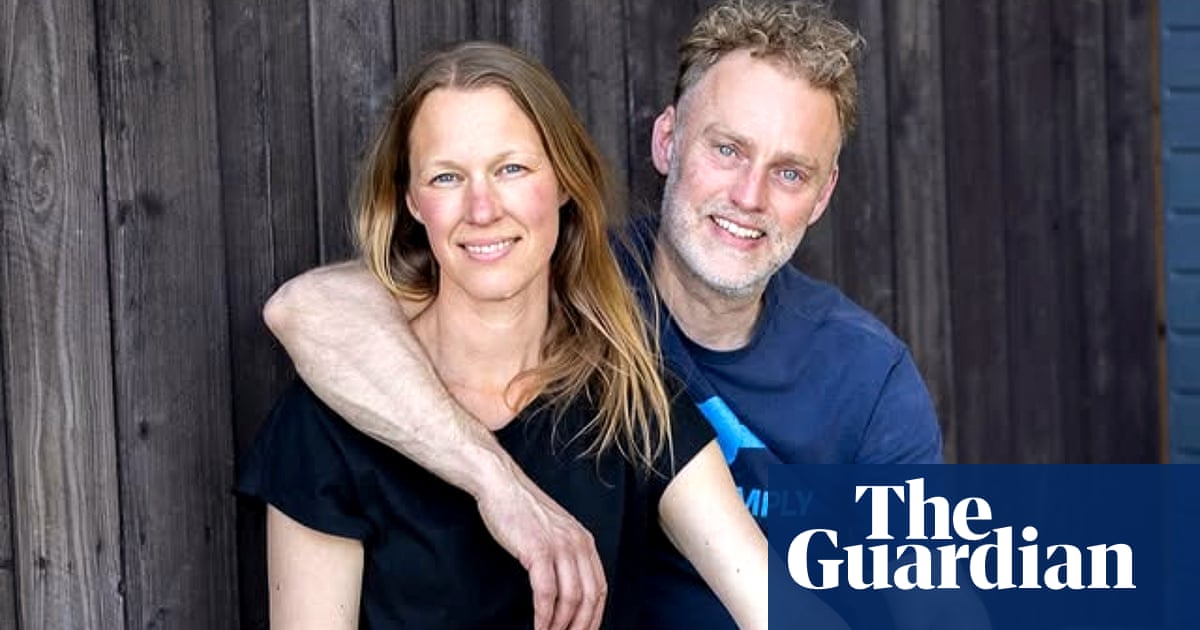A woman who killed her newborn baby 27 years ago while suffering from postnatal depression has been spared jail as a judge said the case “calls for compassion”.
Joanne Sharkey, 55, was handed a two-year prison sentence, suspended for two years, after admitting manslaughter on the grounds of diminished responsibility over the death of her days-old son, whose body was found wrapped in bin bags in woodland in 1998.
The discovery sparked a nationwide hunt for the mother of the infant, whom police called Baby Callum, but the search ended when no one came forward.
Then, in 2023, detectives made a breakthrough when a routine cold case review found that the DNA of Sharkey’s firstborn son, Matthew, was a close match to that of the baby boy found 25 years earlier. His DNA had been uploaded to the national database when he was arrested for an unrelated offence years earlier.
Sharkey, a former council officer, was tracked down by police and arrested on suspicion of murder in 2023 after DNA samples proved she was the mother of Baby Callum. Liverpool crown court heard she had lived with the secret for 25 years.
She had been suffering from undiagnosed postnatal depression at the time, after the birth of her first son in July 1996, the court was told.
She had kept her second pregnancy a secret from everyone including her husband, with whom she rarely spent time because of their work patterns.
Sharkey, then 28, gave birth in secret and suffocated the newborn by stuffing tissue paper in his mouth then wrapping his body in bin bags, the court heard. She disposed of her baby boy near Gulliver’s World theme park, in Cheshire, where he was discovered days later.
Jonas Hankin KC, prosecuting, said the defendant had expressed “feelings of guilt and a sense of relief” when she was arrested, adding that she had thought about telling someone “a million times – but how would you say it?”
In police interviews, Sharkey said: “I couldn’t actually say the words. It’s not easy to live with all that time. I thought this would happen. You don’t get away with anything forever.” She added: “It’s haunting. Something you think about every day. You try and push it out but it creeps back in.”
Sharkey’s husband, Neil, and their son, Matthew, gave emotional witness statements in support of Sharkey, describing her as “an amazing mother” who was “remorseful and accepting of any punishment the courts deem suitable”. Matthew, 28, could be heard crying in the public gallery.
The judge, Mrs Justice Jennifer Eady KC, was told that Sharkey would have been jailed for life and ordered to serve a minimum of 17 to 20 years in prison had she not been suffering mental illness at the time.
The prosecution accepted two psychiatric reports concluding she had a “severe depressive illness” which “substantially impaired” her ability to think rationally.
Hankin, prosecuting, said sentencing guidelines suggested a prison term of between seven and 12 years. He said: “The interest of society ought to prevail over the interests of the defendant.”
Nina Grahame KC, for Sharkey, said the defendant qualified for a suspended sentence given that she had spent almost a year on curfew and seven days in custody. She said Sharkey was suffering “underlying trauma” and that prison could exacerbate her distress.
Sharkey wept in the dock as the judge said the events leading to this day were “both terrible and tragic”. Sparing the defendant jail, Eady said this “highly unusual” case raised the real question of whether “appropriate punishment can only be achieved with immediate custody”.
The judge said: “This very sad case calls for compassion. No useful purpose would be achieved by immediate imprisonment.”
Sharkey’s husband and son wept in the public gallery as the sentence was handed down.
The judge said Sharkey’s mental state at the time was “not a case of the baby blues, but a far more sustained period of depression which impacted on you physically and mentally”. She said she had no doubt that Sharkey’s symptoms would have been viewed as requiring urgent medical attention had she sought help at the time.
A psychiatrist described Sharkey’s account of her secret birth as “an experience of de-realisation”, an intense dissociative experience whereby the sufferer perceives the world as unreal. This account was consistent with Sharkey’s recollection of the event, Eady said.
The judge said it was accepted that the defendant’s mental state “substantially impaired your ability to form rational judgment or exercise self-control” and that this had continued after she disposed of her baby’s body.
The court heard that Sharkey had suffered from low mood, anxiety and a personality disorder in the two decades since, eventually telling her doctor about her panic attacks in 2022.
Crying in the dock, Sharkey nodded as the judge said the defendant had accepted that “this was entirely on you” and she was “not going to try deny what you had done. You carried this with you the whole time, thinking about it every day”.
Sentencing, Eady said Sharkey’s legal responsibility was “diminished, not extinguished” by her mental state and accepted that she was “genuinely remorseful”. She said: “I find that the combination of your depression and trauma of your birth substantially impaired your ability to understand the impact of your actions.”
The judge added: “Nothing I can do or say can turn the clock back or bring back the life of a child … You lived isolated with this terrible and tragic knowledge for a quarter of a century.”

.png) 6 days ago
13
6 days ago
13













































